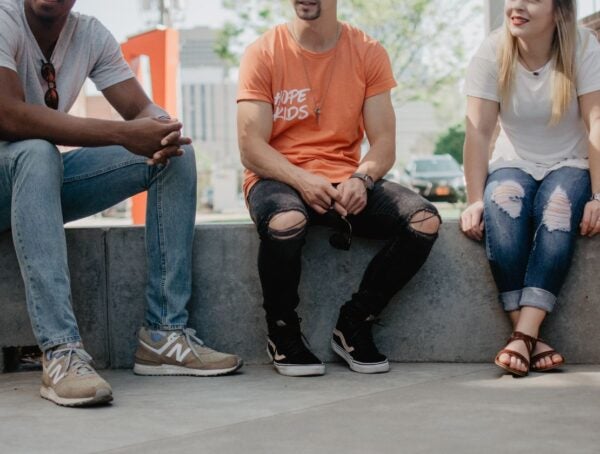Disclaimer: In Real Life is a platform for everyday people to share their experiences and voices. All articles are personal stories and do not necessarily echo In Real Life’s sentiments.
*Dave, (*not real name) is a Sri Lankan business student who moved to Malaysia in January of 2018 to further his studies.
“Before moving here, I have visited Malaysia a few times and did all the tourist things like visit the twin towers. I really liked the diversity and thought it would be harmonious to live here.” Dave said.
However, Dave shares how his whole perspective changed when he became a student resident.
“Being a foreign resident in Malaysia is significantly different than being a tourist. They immediately make assumptions about your skin colour and act differently based on how you look.”
Dave says that because of the unfair connotations, renting apartments is a challenge since most listings specify how they don’t want a certain race with a darker complexion. This has been echoed by other reports in the past.
“I wanted to rent an apartment near my university. Everytime you contact the landlord, one of the first questions would be “What race are you?” Dave shares.
“In the beginning, I didn’t understand why they were asking me this,” he continued. As he got more questions and more rejections due to his race, he realised that there is a racial bias involved.
“Once, I was talking to the agent and he agreed to meet me to show a house. We met up, we saw the house, everything was fine until I got back home. I received a message from the agent who said that the landlord is uncomfortable with someone who has dark skin to stay in his house.”
“I was floored. Why does my skin tone dictate whether I will take care of the house or pay for rent? How about looking at my finances first?”

“When you are a tourist, you get respect because you are seen as helping the economy. But if you’re living here as a foreigner, you’re more likely seen as a criminal especially if your skin colour is dark.”
“They don’t understand that we are contributing with our tuition fees too. Especially since they charge the international student more than a local,” he emphasised.
Dave says he doesn’t want to complain to the authorities, because he doesn’t want to cause trouble.
“I have learned that it is the culture here, and I don’t want to call it out. Foreigners should just expect things like unfairness, culture shock, and rental problems. And, of course, the overly-sweet chili sauce,” he said with a wry grin.
Once, Dave used a Malaysian accent to get out of trouble with the police.
Dave has a heavy Sri Lankan accent. But when he goes to bars, he adopts a Malaysian accent to blend in with the locals.
“Sounding more local also makes you less likely to get in trouble when it involves the authorities,” Dave confided.
“When the police conduct raids, they usually target the foreigners first and give them a hard time, before turning to the locals,” Dave told me.
“Once during a raid, I just casually talked to them while faking a Malaysian accent. They didn’t even bother asking to see an IC or any kind of identity, since they just assumed I was an Indian from Malaysia,” he explained.
Dave has started to use Manglish in his day-to-day while living in Malaysia
 Despite growing up in an English-speaking household, everyone’s first impression upon meeting him is that he speaks broken English, because of his heavy Sri Lankan accent.
Despite growing up in an English-speaking household, everyone’s first impression upon meeting him is that he speaks broken English, because of his heavy Sri Lankan accent.
“Because of my thick accent, people excluded me from their friend groups, and I was avoided by my classmates,” he opened up honestly.
“In order for me to fit in and make new friends, I’ve made the word ‘lah’ a part of my vocabulary, ” Dave said.
“My first breakthrough was learning how to say numbers in Malay. It really helped me order food in Mamak. I can just say ‘boss, dua roti canai’ and they would understand with ease.
Now he has learned phrases like ‘terima kasih’ and ‘selamat pagi.’
Dave has noticed it’s not necessarily a must to learn Malay to be accepted by his Malaysian friends.
“People do speak English well here, so I’d say it’s not about whether you speak the National language, it’s about the accent.”
“If you have a Malaysian accent, you’re pretty alright, if you have a “white” accent, even better! But if your accent is foreign-sounding, you would be made fun of.”
However, he believes if you are able to speak Malay, you would be respected more, especially by the Malay community.
Dave hopes that Malaysians can learn to accept that most darker skinned foreigners aren’t criminals
“I’d like all Malaysians to know that we foreign students contribute so much to the economy, and we shouldn’t be treated by criminals for living here,” he said earnestly.
Dave thinks people need to be more educated on racism. “When you are exposed to more cultures, and have more diverse groups, you tend to be more accepting and open minded to new cultures,” he states.
He believes everyone, no matter where you are from, what your skin colour is or your accent, should get equal opportunities. “Having a preference for a certain race is just racism behind a mask.”
Dave continues, “After all, Malaysia is a diverse and multicultural country. It’s why I chose to move here in the first place. It’s beneficial to be more accepting to new cultures and backgrounds.”
For more stories like this, read: The Racism I Experienced Dating In Malaysia and I’ve Been a Foreigner in Malaysia for a Decade — Here’s Why I’m Leaving.
If you like what you read, follow us on Facebook & Instagram.

You might also like
More from Real People
‘A RM100 fee cost a company 5 years of revenue’ shares M’sian
This story is about a Malaysian who learned that bureaucracy can be defeated simply by not arguing with it.A billing …
‘I quiet-quit, upskilled, and tripled my salary,’ shares M’sian engineer
This story is about a Malaysian who learned that loyalty without leverage leads nowhere in the corporate world.After years of …
‘I did everything right, and it still wasn’t enough’ shares M’sian graduate
This story is about a Malaysian graduate navigating big dreams in a job market where a degree no longer guarantees …


















